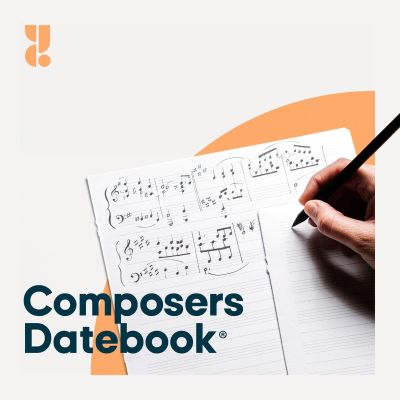Composers Datebook™ is a daily two-minute program designed to inform, engage, and entertain listeners with timely information about composers of the past and present. Each program notes significant or intriguing musical events involving composers of the past and present, with appropriate and accessible music related to each.
Pachelbel and his "Canon"
On today's date in 17th century Germany, a baby boy was christened who would grow up to be one of the leading composers and organists of his time. No, it wasn't Johann Sebastian Bach — although the child we're discussing here would become the teacher of the teacher of J.S. Bach, and did serve as godfather to one J.S. Bach's older relations. It was Johann Pachelbel who was baptized on today's date in Nuremberg in the year 1653. A famous musician in his day, after his death in 1706, Pachelbel would be pretty much forgotten by most music lovers until late in the 20th century, when an orchestral arrangement of a little chamber piece that he had written would, as Pachelbel's "Canon," suddenly become one of the best-known, best-loved, and — courtesy of an American invention known as muzak — one of the most unavoidable classical themes of our time. In 1979, the American composer George Rochberg even included this set of variations on Pachelbel's Canon as the 3rd movement of Rochberg's own String Quartet No. 6. Like J.S. Bach, some of Johann Pachelbel's children also became composers, and one of them, Karl Teodorus Pachelbel, emigrated from Germany to the British colonies of North America. As "Charles Theodore Pachelbel," he became an important figure in the musical life of early 18th century Boston and Charleston, where C.T. Pachelbel died in 1750.
